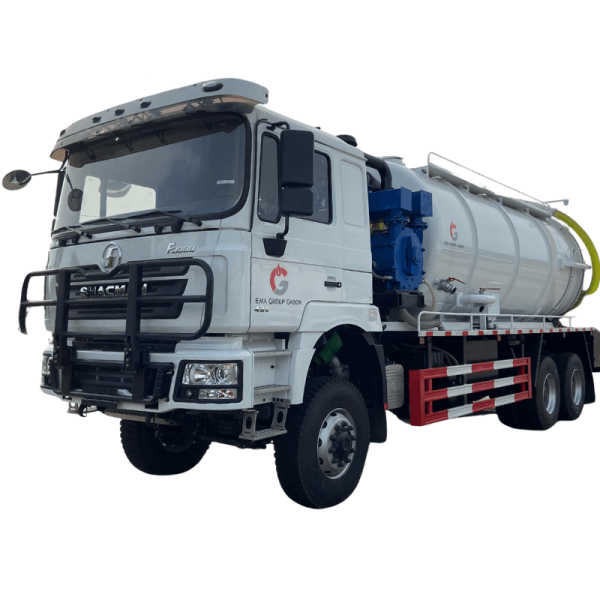The Weight of Garbage Compactor Trucks A Comprehensive Analysis

Introduction
Garbage compactor trucks play a crucial role in waste management systems worldwide. These specialized vehicles are designed to collect, compress, and transport solid waste efficiently. One of the key considerations in the operation of garbage compactor trucks is their weight. In this article, we will explore the various factors that contribute to the weight of these trucks, the implications of weight on their performance, and the importance of adhering to weight regulations for safe and effective waste management operations.
Understanding Garbage Compactor Trucks
Garbage compactor trucks, also known as refuse compactors or waste compactors, are specifically designed to collect and compact solid waste materials such as household garbage, commercial waste, and industrial waste. These vehicles typically consist of a chassis, a compaction mechanism, a loading hopper, and a storage container. The compaction mechanism compacts the waste to reduce its volume, allowing the truck to carry more waste and minimize the frequency of trips to disposal sites.
Factors Influencing the Weight of Garbage Compactor Trucks
Several factors contribute to the overall weight of garbage compactor trucks. These factors include:
1. Chassis: The chassis of the truck forms the foundation of the vehicle and supports the weight of the compaction mechanism, storage container, and waste load. The material and design of the chassis impact the overall weight of the truck.
2. Compaction Mechanism: The compaction mechanism is responsible for compacting the waste material. The weight of the compaction mechanism, including hydraulic systems and mechanical components, adds to the total weight of the truck.
3. Storage Container: The storage container holds the compacted waste until it is transported to a disposal site. The material and size of the storage container influence the weight of the truck.
4. Waste Load: The weight of the waste being collected and compacted is a significant factor in determining the overall weight of the garbage compactor truck. The truck's capacity to carry and compact waste affects its weight-bearing capacity.

5. Additional Features: Garbage compactor trucks may be equipped with additional features such as rear-view cameras, GPS systems, and safety alarms. These features contribute to the weight of the truck.
Implications of Weight on Performance
The weight of a garbage compactor truck has several implications on its performance and operational efficiency. Some of the key implications include:
1. Maneuverability: Heavier trucks may have reduced maneuverability, especially in tight urban areas or narrow streets. Excessive weight can affect the truck's ability to navigate corners and obstacles safely.
2. Fuel Efficiency: The weight of the truck impacts its fuel efficiency. Heavier trucks require more fuel to operate, leading to increased operational costs and environmental impact.
3. Wear and Tear: The weight of the truck places stress on its components, leading to increased wear and tear. Regular maintenance and inspections are essential to ensure the proper functioning of the compactor truck.
4. Road Safety: Overloaded garbage compactor trucks pose a safety risk on the road. Exceeding weight limits can lead to accidents, road damage, and legal consequences.
Importance of Adhering to Weight Regulations
To ensure the safe and effective operation of garbage compactor trucks, it is essential to adhere to weight regulations set by local authorities and waste management agencies. These regulations specify the maximum allowable weight for different types of vehicles and ensure compliance with safety standards. By following weight regulations, waste management companies can:
1. Prevent Road Damage: Overloaded trucks can cause road damage, leading to costly repairs and maintenance for local authorities. Adhering to weight regulations helps minimize the impact of garbage compactor trucks on road infrastructure.
2. Ensure Safety: Compliance with weight regulations is crucial for road safety. Overloaded trucks are more prone to accidents, posing a risk to other road users and the environment.
3. Protect the Environment: Excessive weight can result in higher fuel consumption and emissions, contributing to environmental pollution. By Best refuse compactor trucks to weight regulations, waste management companies can reduce their carbon footprint and promote sustainable practices.
Conclusion
The weight of garbage compactor trucks is a critical factor that influences their performance, efficiency, and safety. Understanding the various factors that contribute to truck weight and adhering to weight regulations are essential for effective waste management operations. By ensuring that garbage compactor trucks are properly loaded and within weight limits, waste management companies can enhance operational efficiency, reduce environmental impact, and promote road safety. Adhering to weight regulations is not only a legal requirement but also a responsible practice that benefits communities and the environment.
